Calls for Ukraine
Calls for Europe
Calls for USA
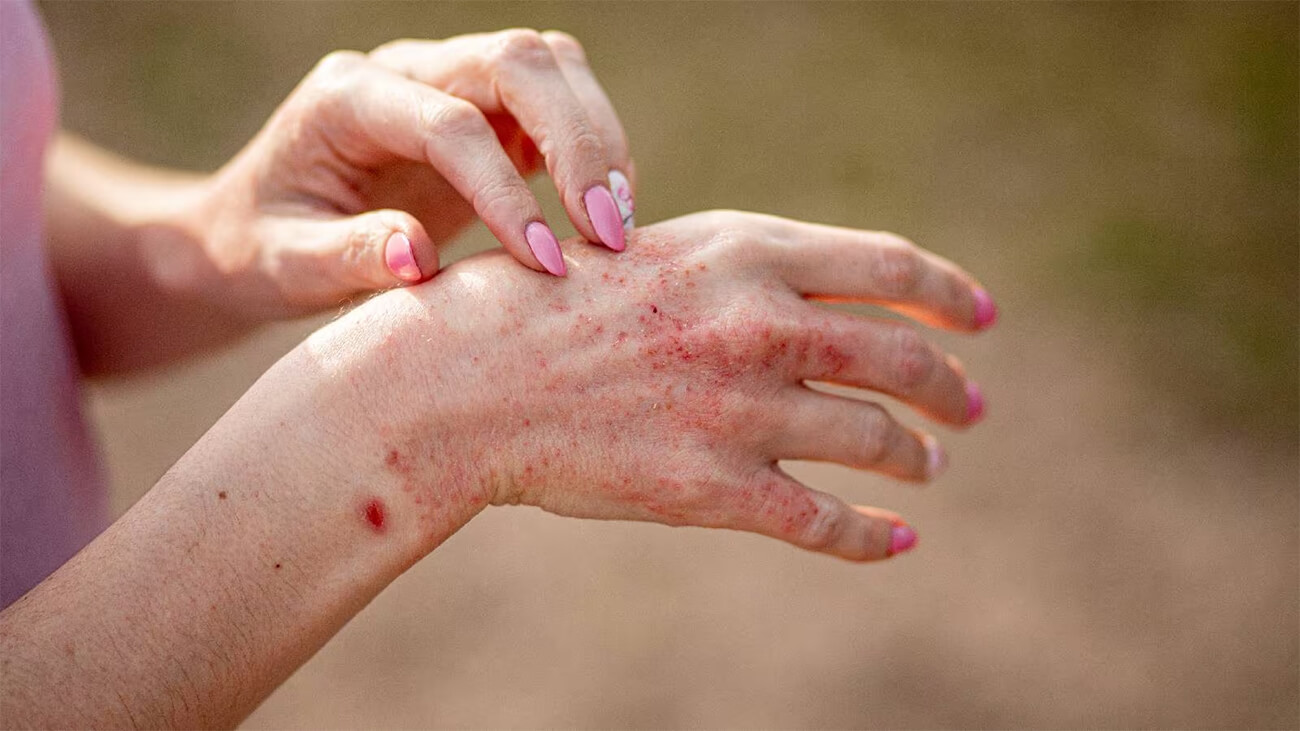
Eczema is a non-infectious skin disease in which an inflammatory process of skin tissues occurs, which is accompanied by a rash and severe itching. The disease can occur in both acute and chronic forms. According to statistics, this pathology is diagnosed in approximately 1-5% of the adult population of the planet and in 15-20% of children. At the same time, among all skin pathologies, the disease is 25-30%. The skin of the hands, feet, face, neck, and scalp may be affected. In severe forms, the entire skin can be included in the process.
This disease can lead to the appearance of wounds on the skin and their infection. In addition, constant itching can provoke sleep problems, cause neuroses. Treatment of eczema is a rather complicated task, since the disease has a relapsing course and over time, the severity of its manifestations often increases. However, today there are new methods that can effectively deal with this skin problem.
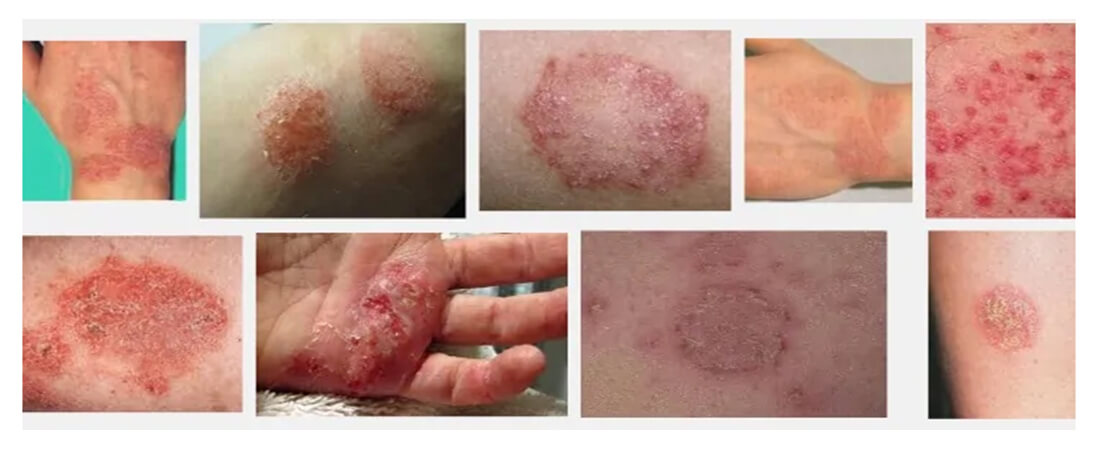
This is a polymorphic disease, in other words, it can manifest itself in different ways depending on the variety, stage of development, and characteristics of the patient.
Among the main signs of pathology:
Symptoms of the disease can manifest themselves in different ways and with varying degrees of intensity. Rashes can be quite diverse depending on the type of pathology, while inflammatory processes can affect a variety of skin areas.

There are many types of the disease and different classifications. According to the characteristics of skin manifestations, dermatologists distinguish eczema:
In addition, doctors most often distinguish the following types of the disease:
In order to find an effective treatment for eczema, you need to find out the reasons that caused it. Both external and internal factors can provoke the appearance of this pathology. Often, pathology occurs under the influence of several factors at the same time. The most common reasons:
A relapse of the pathology can occur against the background of severe stress and emotional overstrain.
Due to the fact that the disease has many forms, it can proceed in different ways. If we talk about true eczema, then the following stages are usually distinguished:
This pathology is considered one of the most complex skin diseases. In the early stages of the disease, it responds well to treatment and most often it is possible to achieve a long-term remission or even completely cure eczema. However, in severe and advanced cases, the disease can be quite severe, covering large surfaces of the skin.
Bleeding wounds can occur, quite strong pain sensations appear, wounds can become infected. Against the background of severe skin rashes and itching, the patient may have problems with sleep, increased irritability, and neuroses. Properly selected treatment of eczema will help to avoid this.
Both eczema and psoriasis are non-infectious inflammatory dermatological diseases. However, they differ from each other in visual signs and the nature of the rashes. Eczema is characterized by rashes in the form of vesicles, at the opening of which liquid is released and ulcerations and wounds appear. With psoriasis, dry patches covered with scales appear. Each of the diseases has its own characteristics of treatment, so it is important to accurately diagnose the problem.
Eczema is a type of dermatitis that has its own characteristics of manifestation and course. If you have skin rashes and other symptoms similar to those of eczema, you should consult a dermatologist. The doctor will be able to accurately diagnose whether it is eczema or some other type of dermatitis, and will select the necessary treatment.
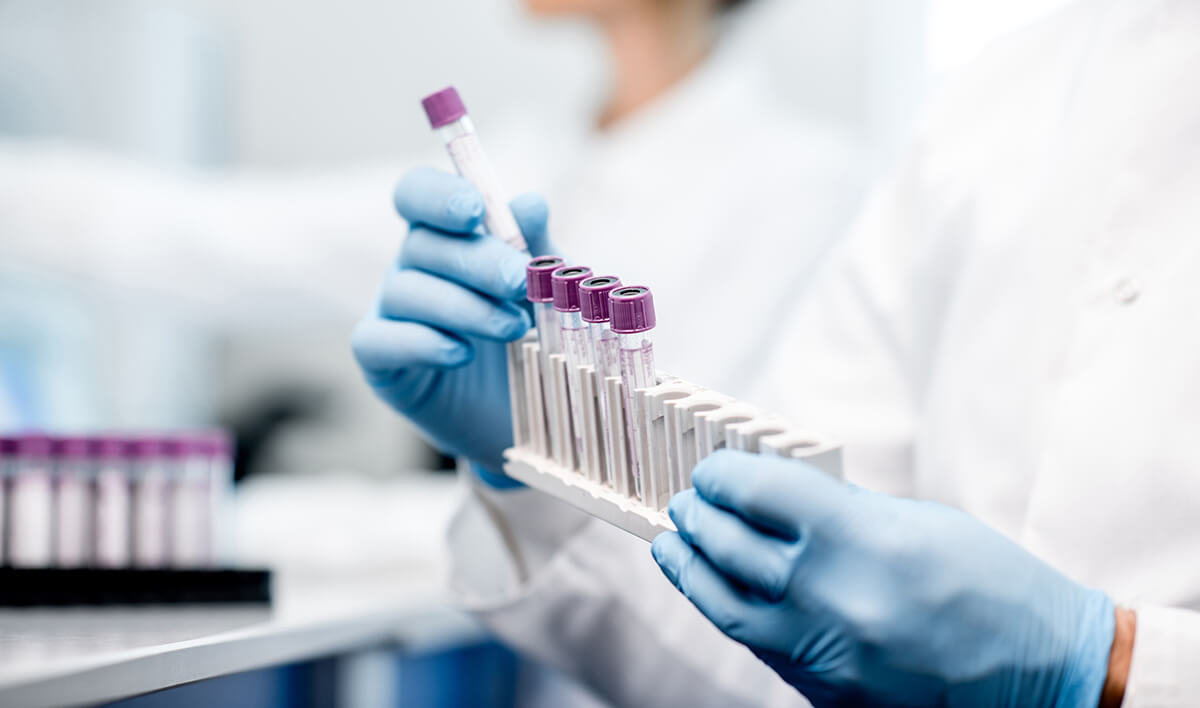
A dermatologist deals with the diagnosis and treatment of eczema. In order to accurately determine the skin problem and identify the causes of its occurrence, a number of studies are carried out:
In some cases, a histological analysis may be additionally prescribed. Also, a dermatologist may prescribe additional studies of internal organs in order to study the state of various body systems.
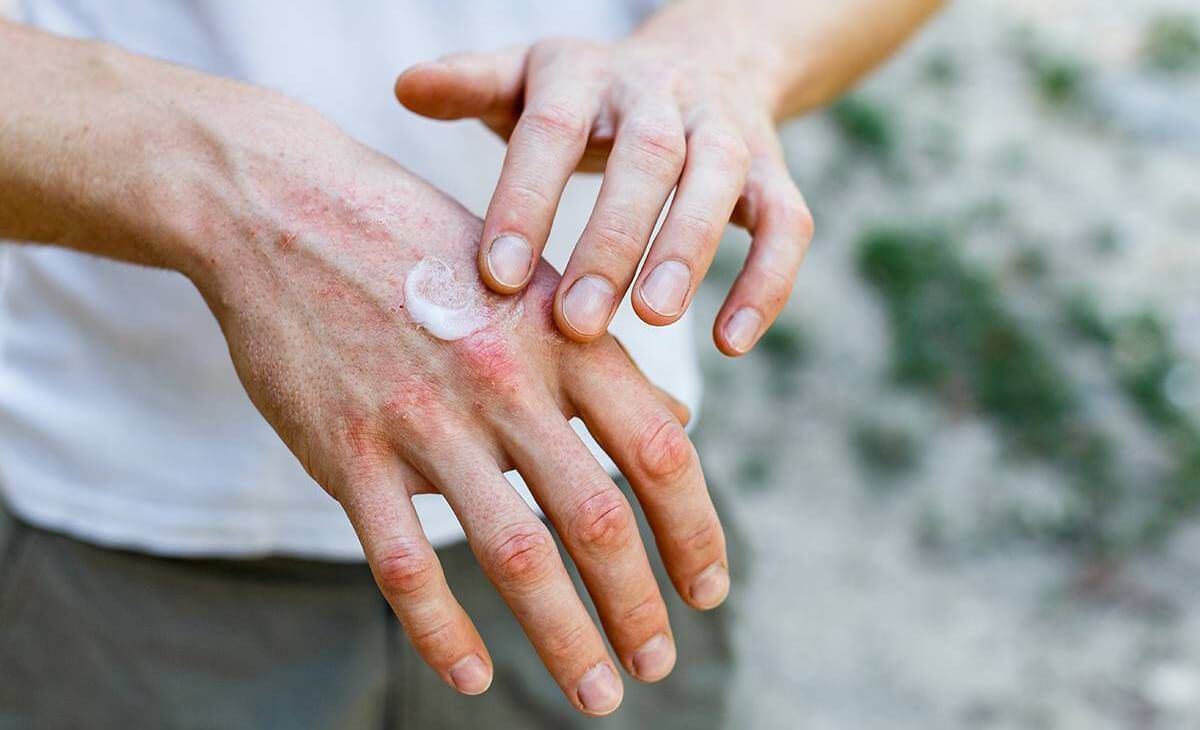
When eczema is diagnosed, treatment is selected taking into account the form of the disease, its stage, location, degree of skin damage, and severity of the disease. Traditional treatments for eczema include:
It is also important to avoid severe stress and give the body enough rest.
However, standard treatments are not always effective enough. Often, drug treatment affects the patient only for a short period of time, but over time, the rashes become more abundant, and the risk of complications increases. In addition, with prolonged use of drugs, drug resistance develops. Therefore, there is a constant search for new possibilities in the treatment of eczema.
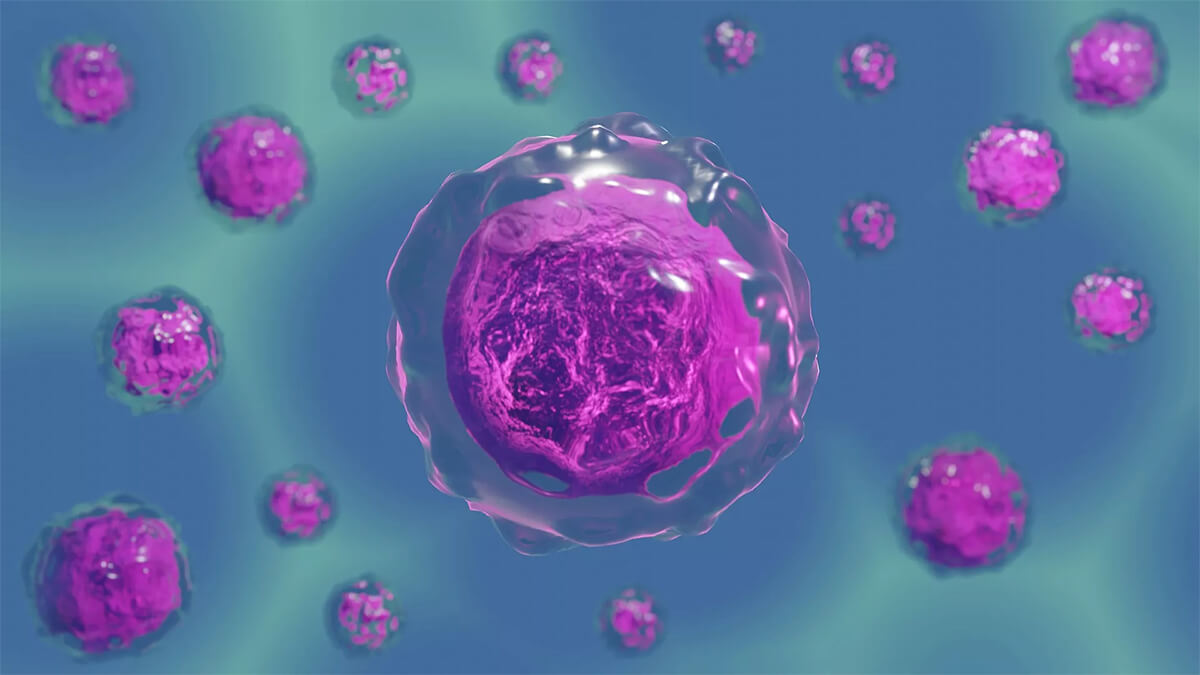
Today, special attention in the treatment of moderate and severe forms of dermatitis is given to regenerative cell therapy. The essence of this technique is to use stem cells and their unique properties. Mesenchymal stem cells (MSCs) are used – non-hematopoietic precursor cells of stromal origin, which have the potential for tissue repair due to their ability to self-renewal and differentiation, and are considered strong modulators of the immune system. They can be obtained from bone marrow, cord blood, adipose tissue, dental pulp and skin.
At the moment, the mechanisms of the influence of MSCs in the treatment of dermatitis have not yet been fully elucidated. However, studies have shown the effectiveness of this technique. For example, subcutaneous administration of a drug with stem cells to patients led to a decrease in the symptoms of the disease. A 50% reduction in the so-called area and severity index of eczema was observed. Immune-related markers of atopic dermatitis were also reduced.
The study of the technique is still ongoing, there is still a need to improve therapeutic strategies for this disease, but there are already clinics that successfully use this technique to combat eczema.
Today you have the opportunity to receive medical care in leading clinics around the world. You can go for treatment to medical centers that use the most innovative treatments for eczema, including stem cell therapy. We will help you find a clinic according to your needs and requests. Send us a request through the contact form to consult a MedTour coordinating doctor for free.
MedTour will help you get to doctors who specialize in the treatment of skin diseases, apply advanced techniques and demonstrate good results. You can get treatment from the best dermatologists.
To learn more about the possibilities of using cell therapy, you can consult online with Andriy Kovalchuk, PhD, associate professor, surgeon. Dr. Kovalchuk uses stem cell therapy for various pathological conditions, will be able to talk about the advantages and features of this technique in the treatment of skin diseases and discuss the possibility of its application in your case.
How does eczema start?
At the initial stage, redness and swelling appear in certain areas of the skin. All this is accompanied by severe itching. Then comes the next stage – a rash appears, which may differ depending on the type of disease.
What does dry eczema look like?
This form of the disease has its own characteristics. As with other types of disease, redness of small areas of the skin and itching appear. But with this variety, the skin is very dry. Over time, cracks appear on it, severe peeling occurs, and crusts form.
What causes eczema to worsen?
The same factors that are the causes of the development of the disease can provoke an exacerbation of the disease. Often, the activation of the disease occurs against the background of allergic reactions, strong emotional shocks, overstrain of the nervous system, hormonal imbalance, disturbances in the functioning of internal organs. When the first symptoms of the disease appear, it is advisable to immediately consult a doctor and begin treatment.
Please rate the work of MedTour
